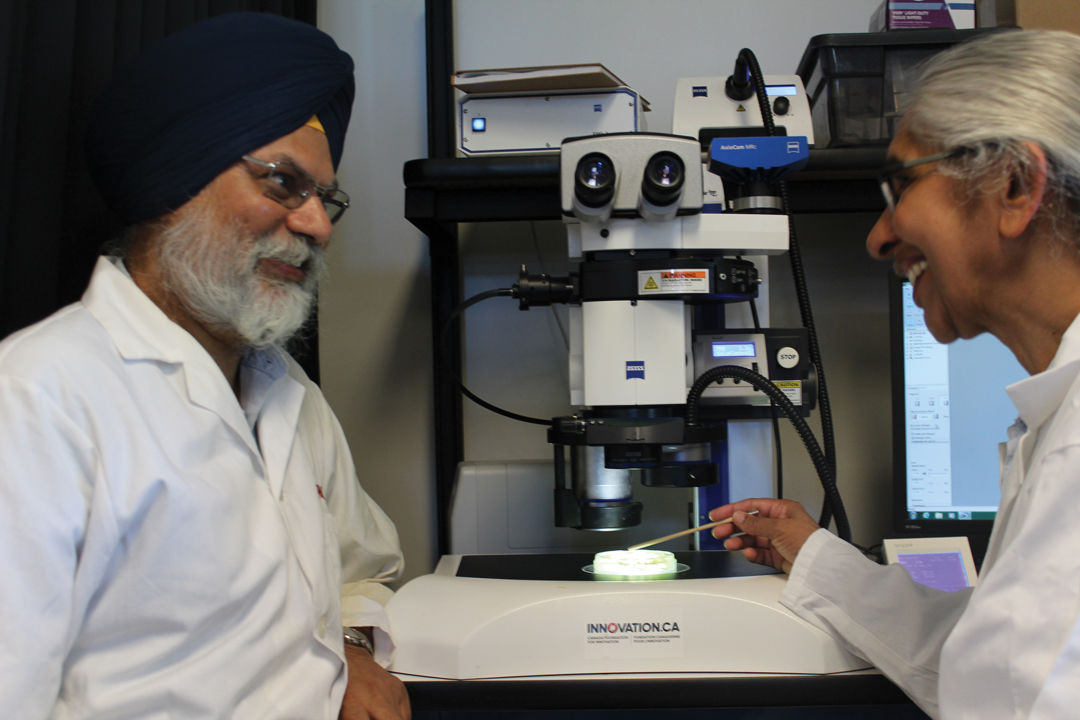DROUGHTS, DOUBTS AND OPPORTUNITIES
BY ERIN K. GOWRILUK
As you read this, Grain Growers of Canada (GGC) staff are back on Parliament Hill, in person, talking to politicians about the issues that matter most to our farmer members. We have been through a harvest, an election and the possible appointment of a new agriculture minister, so there will be no rest as we head into an important winter for our sector and our country.
The impacts of this year’s unprecedented drought are now being realized, and not just within agriculture. We have seen national headlines about the implications of the drought as Canadians continue to grapple with climate change and renewed concern about its effect on food security and price.
During times like these governments at all levels play politics with the programs farmers rely on to get through trying times. A lesson I have learned about effective advocacy is that our top job is to make the sector’s policy priorities matter to politicians whose constituents are urbanites. If the results of the election mirror those of two years ago, most of the people around the cabinet table may yet again primarily be representatives of that constituency.
But, regardless of their connection to the sector or understanding of our issues, they will be well aware of this summer’s drought, its connection to a changing climate and the impact these have on Canadian farmers. This reality is inescapable and ever-pressing. The question is, what do we do about it?
As your voice in Ottawa, it is our responsibility to remind our representatives that farmers are on the front line of climate change. Canadians demand access to safe and affordable food, so we are obliged to ensure farmers have access to the tools they need to nurture crops through adverse weather conditions. When the latest innovation cannot survive the wrath of Mother Nature, our legislators need to ensure they provide a level of support that helps farmers put another crop in the ground next year.
This fall, GGC will renew its pre-election advocacy for increased investment in agricultural research.
This is not just a response to troubling moisture trends and climate patterns. It is also a necessary measure to unlock the growth potential of agriculture through targeted investment in research and development. Such investment should increase the global competitiveness of farmers through productivity and quality enhancements, all while reducing emissions and improving the economic and environmental sustainability of Canadian farms.
We know this is not a small task. It requires strong and co-ordinated financial investment from farmers, industry and government. We need to be bold on behalf of our sector. This is why we ask our federal and provincial governments to invest a minimum of two per cent of farm cash receipts in research and innovation in the next research cluster.
This should be coupled with additional funding for the AgriScience Program clusters under Agriculture and Agri-Food Canada’s (AAFC) Canadian Agricultural Partnership. Right now, clusters represent the only significant means to leverage industry investment with federal funding. However, the need for significant research investment is on the increase and the program has not kept pace.
We have seen what happens when drought lays waste to the Prairies. We know farmers are ready to respond, but they need access to well-funded innovative research to keep them competitive. As the climate continues to shift towards unpredictability, the time is now to increase stability in our sector and create a vision for the future. From our legislators, this will require clarity, courage and a desire to be bold.
Post-election, as the business of government fires up once again, this is what GGC will push for.
Erin K. Gowriluk is the executive director of the Grain Growers of Canada.








Comments